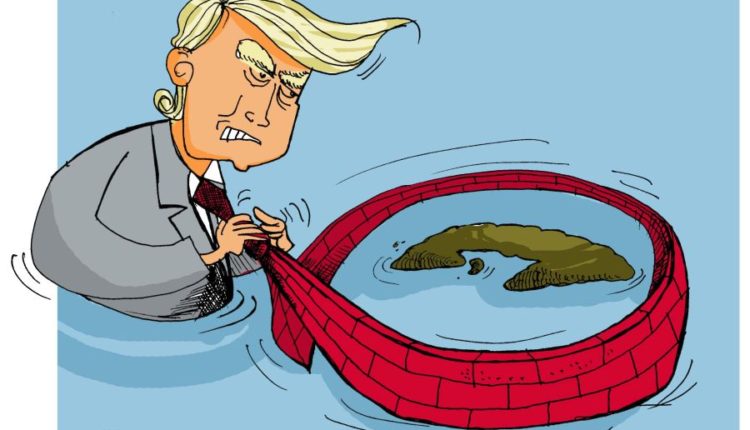 Photo from Escambray.
Photo from Escambray.
Cuba: Backing down is not an option
HAVANA – Taking advantage of the opportunities created by the Obama administration, who took heed of the failure of U.S. policy toward Cuba, as well as the pressure exerted on the United States by the progressive Latin American governments, and the political left, then-president Raúl Castro, while on one end implementing reforms on the Island, negotiated the restoration of diplomatic relations with the United States. It was a winning combination that initiated the normalization of state and social ties between the two countries.
The restoration of diplomatic relations between Cuba and the United States in 2014 did not solve any of the bilateral problems, but it did create an atmosphere to solve them. It also meant U.S. recognition of Cuba’s social dynamics, and respectfully dealt with Cuba’s leaders at the time, Fidel and Raúl Castro.
The strategy proved effective. It was compatible with President Obama’s thinking who, for his own reasons, considered the blockade a failure, even an inconvenience for the United States, who seemed to block itself while trying to isolate Cuba.
Thus, Cuba enjoyed a brief opportunity to join the pair of countries formed by China and Vietnam that, without renouncing socialism, have managed to integrate into the global economy, advantageously relate to the West, and even associate economically and commercially with private capital and the government of the United States. Hillary Clinton’s defeat at the polls, which in a way would have signaled an Obama ‘third term’, frustrated the opportunity.
As part of the Obama process the issue of U.S. claims for the expropriation of companies that were owned by U.S. citizens and firms in Cuba in the early 1960s became an issue. The obligation was foreseen under the nationalization laws and recognized by the Cuban government. In return, Cuba officially demanded compensation for the damages caused by the blockade, and although no substantive progress is known, the issue was not dramatized.
The practice followed by Presidents Clinton, Bush and Obama of not applying Title III of the Helms-Burton Act contributed to the atmosphere of bilateral detente, which made the negotiations, although difficult, create the possibility that could lead to results. This might have helped remove or reduce, in its technical and legal aspects, an issue that together with the blockade and the existence of the naval base at Guantánamo, hinder, although without preventing it, the normalization of relations between Cuba and the United States.
However, tensions provoked by the implementation of Title III of the Helms-Burton Act, added to the absurd and aggressive rhetoric blaming and threatening Cuba for the political process in Venezuela, gives rise to new views on issues that exist. Apart from political manipulations, they are part of a bilateral agenda that can be addressed, and can contribute to a new direction towards detente.
Of course, when it comes to this, the current U.S. administration will not take the initiative, but instead will try to fester the matter by presenting it as a result of Cuba’s ill will, which could aggravate the proactive attitudes that seek a negotiated solution.
It is not about making concessions, but about exorcising demons, looking for non-confrontational formulas, separating the objective problems from the tensions of the moment, and placing the provocateurs before their inconsequences. Negotiating the way to honor a consciously assumed obligation is not to abdicate but to advance.
Title III of the Helms-Burton III law is not the final solution, but I must confess that the triad formed by Secretary of State Mike Pompeo, Sen. Marco Rubio and National Security Advisor John Bolton has many prejudices and lacks negotiating skills and political sensitivity. By once again turning Cuba policy into a hostage of the counterrevolution, the United States returns to the 1960s.
Cuba cannot do that. Therefore, backing down is not an option.

